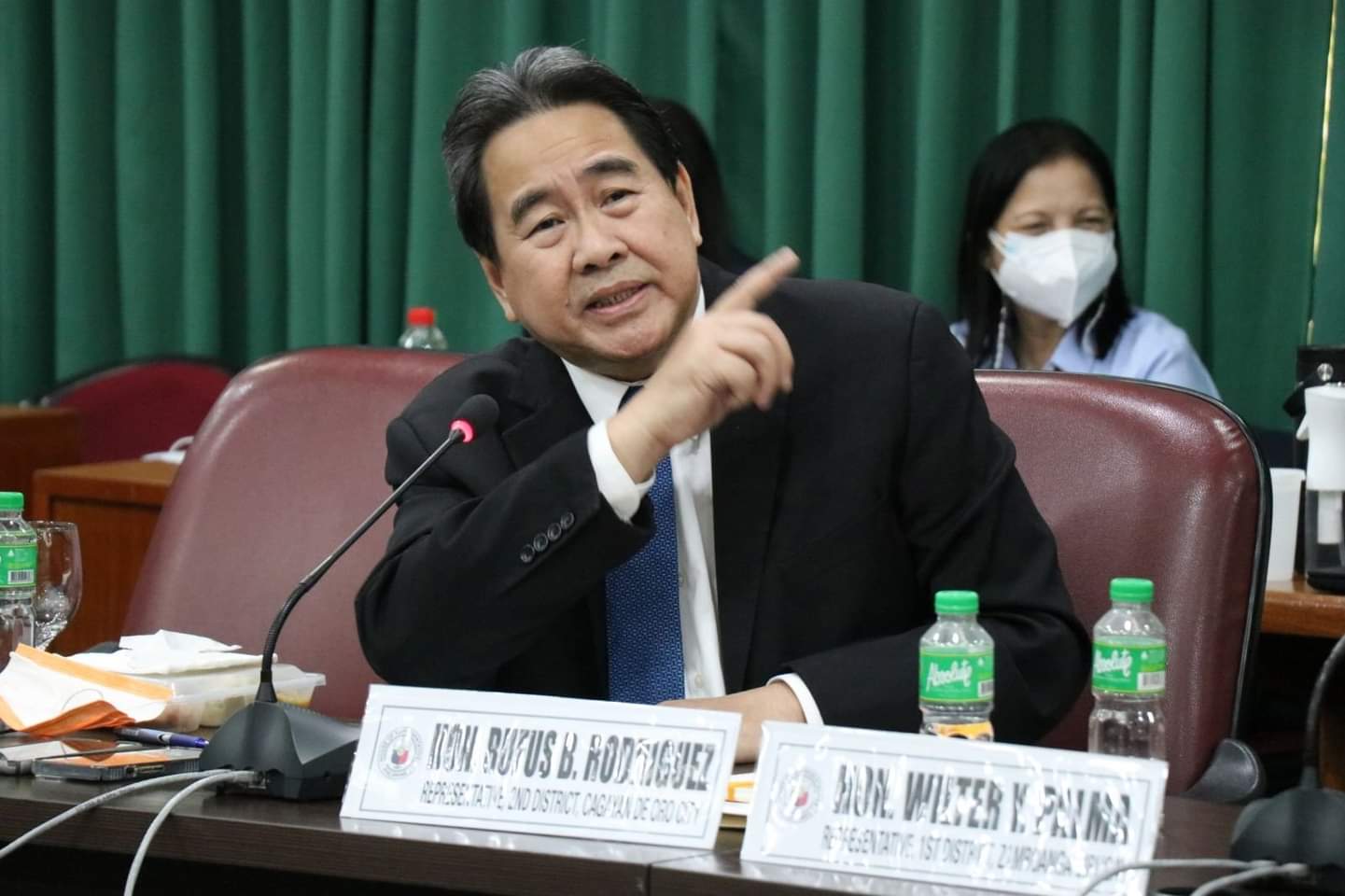Rodriguez asks SC to expedite hearing on P89.9-B PhilHealth fund transfer
At A Glance
- Instead of next year, Cagayan de Oro City 2nd district Rep. Rufus Rodriguez is urging the Supreme Court (SC) to set for next month the hearing on the controversial transfer of P89.9 billion worth of excess funds from the Philippine Health Insurance Corporation (PhilHealth) to the National Treasury.
 Cagayan de Oro City 2nd district Rep. Rufus Rodriguez (Rep. Rodriguez's Facebook)
Cagayan de Oro City 2nd district Rep. Rufus Rodriguez (Rep. Rodriguez's Facebook)
Instead of next year, Cagayan de Oro City 2nd district Rep. Rufus Rodriguez is urging the Supreme Court (SC) to set for next month the hearing on the controversial transfer of P89.9 billion worth of excess funds from the Philippine Health Insurance Corporation (PhilHealth) to the National Treasury.
The SC announced that it will conduct oral arguments on consolidated petitions questioning the fund transfer on Jan. 14, 2025.
“I appeal to the [SC] to hear oral arguments early next month, not in mid-January. Otherwise, it will be too late. The entire P89.9 billion will have been remitted to the treasury by November,” Rodriguez said in a statement.
The veteran lawmaker argued that the hearing would have “lost its usefulness” by then as he expects the funds to be fully spent around the same time in January.
“Aanhin pa ang damo kung patay na ang kabayo? (What good is the grass if the horse is already dead?)” he stressed, citing the Filipino proverb that emphasizes the need for timely action.
So far, PhilHealth has transferred the first tranche of P20 billion last May 10, and another P10 billion last Aug. 21.
A third tranche of P30 billion is scheduled on Oct. 16, with the remaining balance of P29.9 billion slated for November.
Rodriguez, a former law dean, reiterated that the PhilHealth fund transfer violates Republic Act (RA) No. 11223 or the Universal Health Care Act.
He specifically cited Section 11 of the law, which states that the state health insurer shall “set aside a portion of its accumulated revenues not needed to meet the cost of the current year’s expenditures as reserve funds”.
“Provided that the total amount of reserves shall not exceed a ceiling equivalent to the amount actuarially needed for two years’ projected program expenditures; Provided further that whenever actual reserves exceed the required ceiling at the end of the fiscal year, the excess of the Philhealth reserve fund shall be used to increase the program’s benefits and to decrease the amount of members’ contributions,” the law reads.
The congressman noted that it also violates RA No. 11467 and RA No. 10963, which mandate the allocation of revenues raised from excise taxes on alcohol products, tobaccos, and sweetened beverages to Philhealth for the actual implementation of the Universal Health Care Programs.
Earlier, the Department of Finance (DOF) ordered government-owned and controlled corporations (GOCC), such as PhilHealth, to transfer their excess funds to the Bureau of the Treasury.
The agency explained that this was a “more prudent” option for the government than borrowing or imposing taxes to finance unprogrammed appropriations.
Senate Minority Leader Aquilino "Koko" Pimentel III, health advocates, and Bayan Muna have filed petitions before the SC challenging the fund transfer.